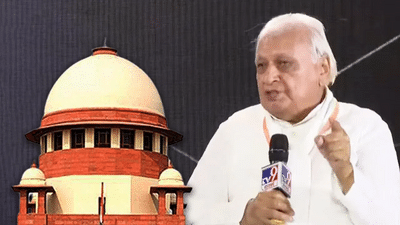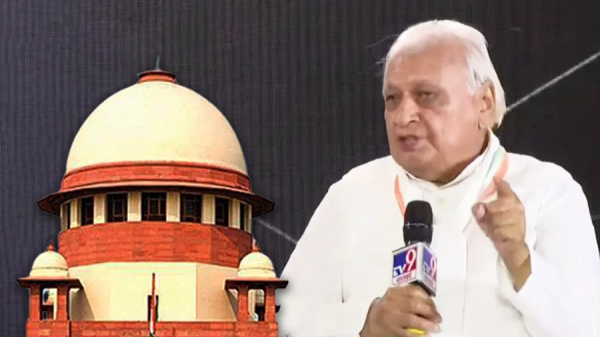

During TV9 Bharatvarsh’s Satta Sammelan in Patna, Bihar Governor Arif Mohammad Khan addressed the ongoing debate about the powers and responsibilities of governors — and whether the Supreme Court can set deadlines or limits on their functioning.
Who Is Supreme – Parliament or Judiciary?
When asked about the apparent conflict between the judiciary and Parliament, Khan responded with a thought-provoking statement:
"No matter how big you become, the law is above you — not the court, not Parliament, but the law itself. However, only Parliament has the authority to change that law."
His remarks highlighted the constitutional principle that while the judiciary interprets the law and the executive enforces it, the ultimate power to make or amend laws lies with the legislature.
On Supreme Court Setting Deadlines for Governors
Referring to recent judgments where the Supreme Court has directed governors to act within a stipulated time — especially in cases related to the functioning of state assemblies — Khan said:
"I will not comment directly on any Supreme Court decision. But based on my reading of the Constituent Assembly debates, I understand why the Governor’s role was created."
He added that India’s long history of political fragmentation influenced the decision to create the post of the governor — as a constitutional safeguard meant to uphold the unity and integrity of the nation.
Governor's Role Explained
Khan elaborated that the governor’s position was never meant to be merely symbolic or ceremonial.
"The post was created to ensure that even popularly elected governments follow the Constitution," he said.
He emphasized that this role continues to be important, even after the emergency provisions were amended, and that the institution of the governor was deliberately retained to remind state governments of their constitutional boundaries.
Conclusion: Constitutional Balance Is Key
Arif Mohammad Khan's comments reflect a nuanced view of India’s federal structure — acknowledging the delicate balance between legislative power, judicial oversight, and the executive role of the governor. Without directly challenging the judiciary, he underscored the original intent behind the governor’s office as envisioned by the framers of the Constitution.